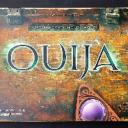Yahoo Answers is shutting down on May 4th, 2021 (Eastern Time) and the Yahoo Answers website is now in read-only mode. There will be no changes to other Yahoo properties or services, or your Yahoo account. You can find more information about the Yahoo Answers shutdown and how to download your data on this help page.
Do you have ideas for a parapsychology experiment?
Please don't refer me to a site with a list of experiments or a skeptic site discussing the problems with experiments. I'm asking for your own personal ideas of what would make a good experiment.
Try to include information about the subjects that might be involved (general public, goats, sheep, or known psychics). Also include details about what would be tested, the methodology for the tests, and any essential controls. Finally, include an estimate of what should be considered adequate results to either support the hypothesis or disprove the null hypothesis.
Please consider that science does not require 100% accuracy, and sometimes 50.1% accuracy is not adequate to provide sufficient evidence that the results exceed chance.
I have one final suggestion that I hope you will consider. Please stick to your own answer rather than providing criticism of the other suggestions that are presented. There are a lot of other questions that provide a forum for criticism. Thanks!
4 Answers
- JohnLv 71 decade agoFavorite Answer
I think that of the variety of experimental designs employed in parapsychology to date, a specific subset of the better ones would be adequate to demonstrate a positive effect, if indeed psi abilities did exist, and if the proper controls and methods were in place. I have discussed before the over-reliance on the 95% confidence interval - this being more of a "rule of thumb", and applicable only for small number of trials, and necessarily increases with huge number of trials such as with the PEAR studies. There is also much more importance placed on this number than is warranted -- it is much like the coat of paint on the house, where the house is the body of theoretical analysis which supports the reported confidence interval. I'm much more interested in the house and if its structure is sound, without which the paint is meaningless.
We've discussed this in email before and I've also answered many questions along these lines, so no use in repeating that here. So aside from the methods and controls issues, I can't think of a different experimental design that would seem to be vastly better than the best of those that have been done before.
Instead I would answer this question by taking it to a higher level and addressing the null hypothesis, which I have mentioned before. What I would like to see in parapsychology is to see it stop relying completely on rejecting the null hypothesis, and join the rest of the scientific world by positively defining what it is investigating, and then support its hypotheses by testing of these positive qualities. Parapsychology is the only claimed area of scientific research that rests solely on rejecting the null hypothesis. However, to get to this point parapsychologists will need to come up with a positive description of the mechanisms of psi, and this seems quite far off (I don't mean speculations, but testable mechanisms).
In addition, another "pet peeve" I have is the lack of reproducibility. I would like to see an experimental design put forth that would produce results (for this particular purpose I would even accept as a result a defensible rejection of the null hypothesis) by both neutral research teams as well as pro-psi research teams. So far has not happened, which again stands in stark contrast to the rest of science. Because this lack persists, I think it has led to some absurd ad hoc explanations, one of my favorites from Rupert Sheldrake who claimed that his "morphic field" was dampened by skeptical thought :)
The article below appeared in Journal of Consciousness Studies and I think is fairly even handed, though it is written by one skeptical of psi so you may not agree. Still, I think you'll find it very useful. It is written by James Alcock, Professor of Psychology at York University.
Journal of Consciousness Studies, 10, No. 6–7, 2003, pp. 29–50
- Dr. NGLv 71 decade ago
My experiment would not be very stringent. It would simply require the person claiming an ability to demonstrate it. It would not have to be double blind. The only one I care to convince is me.
A remote viewer or astral projector, need only identify a number created by me in a sealed room. Do it twice and it's a successful experiment, to me.
A psychic could identify playing cards behind a screen 3 times through the deck. I'd be impressed by 25-30% correct,convinced by 51%.
To put it simply, my experiment would require only doing what you say you can do.
I may not be scientific, but I ain't no scientist.
- nightmusicLv 61 decade ago
This is not something that can be scientifically verified. I'm just mentioning it because it was interesting and simple. A friend of mine and me one time sat down and she said, think of a color and I'll tell you what it is. She guessed every color correctly. Not right off but after concentrating for about a minute. And she said "You're really good at this. I'm getting them very strong." And I was imagining the colors very vividly.
- Anonymous1 decade ago
Bend a spoon under controlled conditions without ever touching it. Once would be enough.


